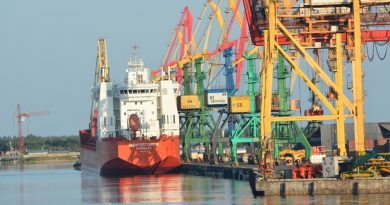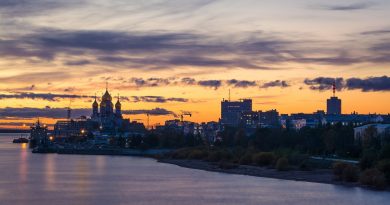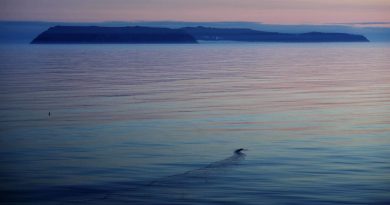Tankers set course for thick ice as part of experiment on Northern Sea Route
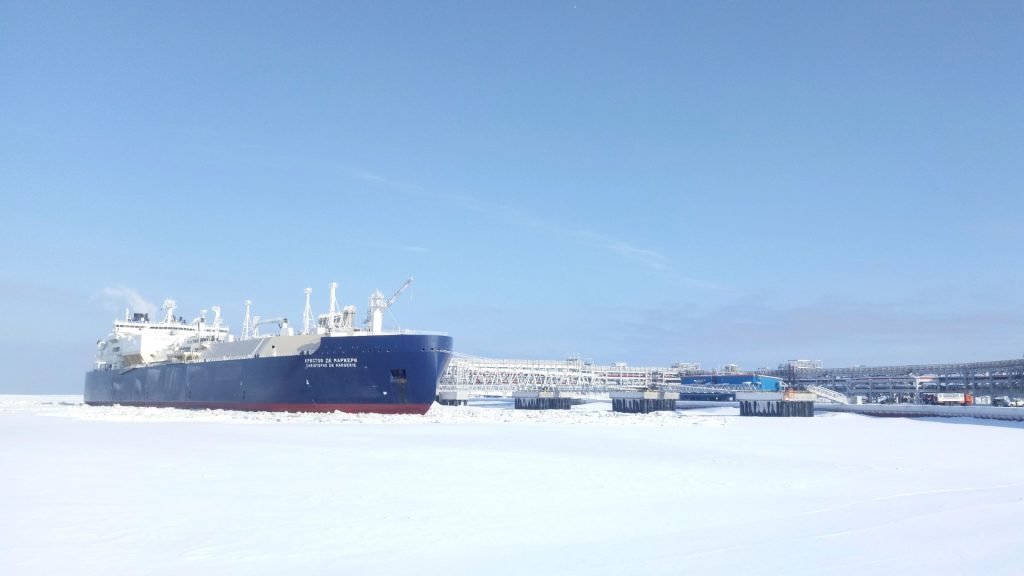
As natural gas carrier Christophe de Margerie sails eastwards towards China, the Nikolay Zubov enters the Bering Strait in the opposite direction. It a first mid-winter operation of the kind, the two commercial ships will cross each others’ paths in one of the most icy parts of the Arctic sea route.
It has been under planning for a long time, and repeatedly announced by Russian Arctic developers. On Jan. 5, the Christophe de Margerie set out from LNG terminal Sabetta with east-bound course for Chinese port Dalian. Eleven days earlier did the Nikolay Zubov leave Dalian with course for Sabetta.
While the former is expected to reach its destination in China on the Jan. 26, the latter is due to arrive in Sabetta on Jan. 16.
Never before have two commercial ships conducted this kind of parallel voyages on the Northern Sea Route at this time of the year. None of the ships are accompanied by icebreakers.
The operations are part of a series on experimental shipments on the remote and icy shipping route. In July last year, Sergey Frank, board chairman of shipping company Sovcomflot, made clear that ice-class tankers will be sailing on the Northern Sea Route in January and February.
The experiments are conducted in cooperation with natural gas producer Novatek and nuclear power company Rosatom, Frank said. It is part of a bid to show that the route can be used also in winter time. According to ship operators, the NSR can soon be used for sailing up to 10 months of the year.
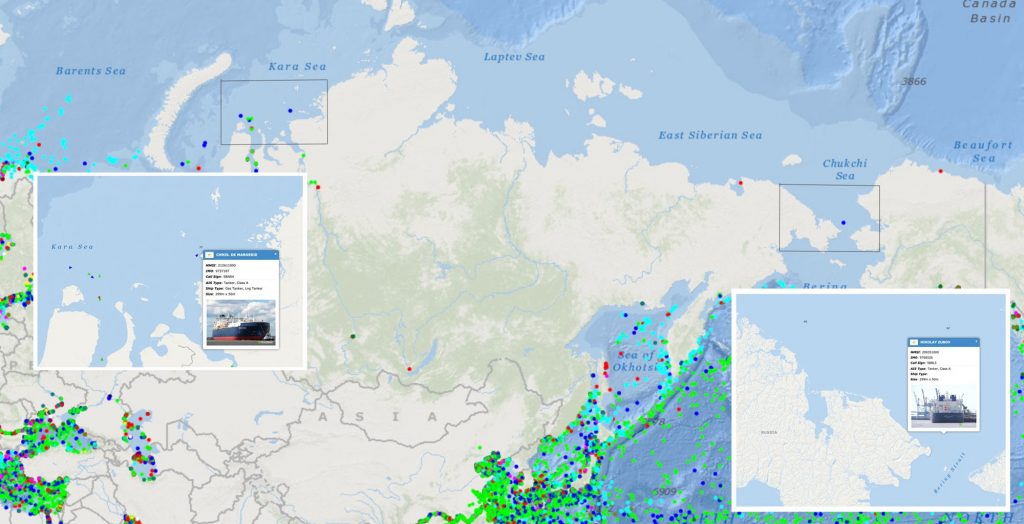
In May 2020, Sovcomflot sent its Christophe de Margerie across the route in a record-early voyage, more than a month earlier than the previous record.
Previously, voyages across the eastern part of the NSR in January were conducted in 2019 by Boris Sokolov, a condensate tanker, and Yamal LNG carrier Boris Davydov. The two ships sailed from east to west without icebreakers. In January 2018, LNG carrier Eduard Toll made the same voyage.
The natural gas tankers are part of a fleet of 15 vessels that serve the Yamal LNG project. They can carry up to 70,000 tons of liquified nature gas, and all have ice class Arc7, that enables them to autonomously break through up to 2,1 metres of sea ice.
The fleet of LNG carriers is instrumental in the major spike in shipping in the Russian Arctic. In 2020, more than 32 million tons of goods was shipped on the Northern Sea Route, up from 2019 when the volume amounted to 31,5 million tons.
The lion’s share of the goods is LNG.
By year 2024, the Kremlin intends to boost volumes on the NSR to 80 million tons and further to 130 million tons by 2035.
Related stories from around the North:
Canada: 2019 saw increase in commercial shipping through Northwest Passage, Radio Canada International
China: US sanctions against Chinese shipping company could hurt Russia’s LNG exports, The Independent Barents Observer
Finland: Finland’s aging icebreaker fleet needs modernization, Yle News
Iceland: New guideline launched for Arctic-specific risk assessment in shipping, Eye on the Arctic
Norway: Hybrid-powered electric cruise ship navigates Northwest Passage, CBC News
Russia: Shipping on Northern Sea Route breaks record, The Independent Barents Observer

